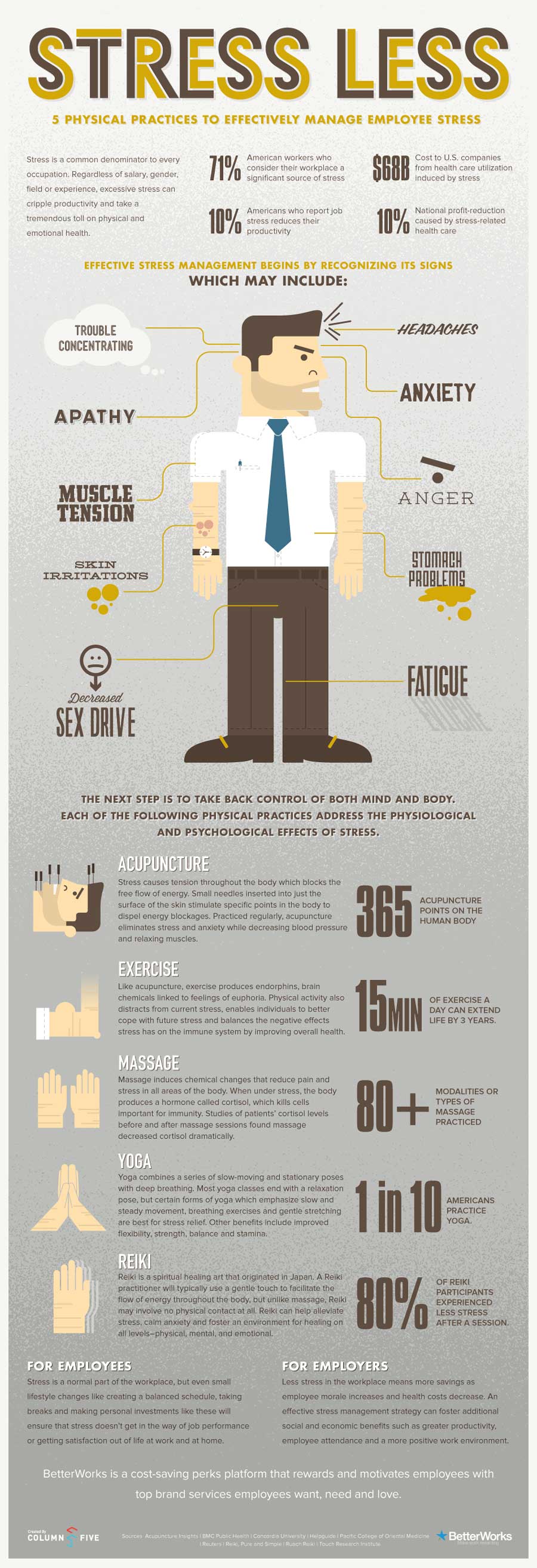Stress has overtaken back pain as the biggest cause of long term sickness, according to a report conducted by the Chartered Institute of Personnel and Development, so it is vital we discover what we can do to eliminate it from our busy lives.
The word stress refers to the body’s physical and emotional response to a demand that forces a person out of their comfort zone. These responses can sometimes help, providing bursts of energy to escape danger, but it is when such responses are a reaction to something emotional that people could start to suffer.
Effects of stress
High levels of stress could have health implications on the body such as depression, hair loss, diabetes and ulcers.
A poll survey conducted by news service SWNS, on behalf of online learning provider, SkillSoft, proved those working in IT were most likely to suffer from stress, with people in frontline service jobs such as police, teachers and social workers coming close behind.
Reducing stress levels
Stress is one of the biggest factors determining the levels of serotonin in the brain. Serotonin, also known as the happy hormone, is a brain chemical messenger, which transmits nerve impulses between nerve cells or neurons. Serotonin plays an important part in regulating mood, learning and sleep. Boosting levels of this ‘feel good’ neurotransmitter, could help stimulate the brain and reduce unwanted stress levels.
Serotonin occurs after our body converts the amino acid, tryptophan (which we source from our diet from foods such as red meat and dairy products) into 5-Hydroxytryptophan. More commonly known as 5-HTP, our body needs this amino acid to synthesise serotonin. This means, if we are low in 5-HTP, our levels of serotonin could decrease and result in feelings of fatigue and low moods.
Top tips to reduce stress
5-HTP could help to boost serotonin levels. Other ways we could increase our body’s level of this happy hormone and help reduce stress include:
Getting active
Increasing your levels of physical activity could increase both your mental and physical state, reducing the intensity of your emotions and helping you deal with your thought and stress levels more calmly.
Ditch unhealthy habits
Try not to become dependent on alcohol, caffeine and smoking. These may appear to be temporary solutions but will be more damaging in the long run.
Create ‘me’ time
Take a step back from your busy schedule and allow time for yourself. Set aside one or two nights a week for socialising, relaxing or exercise.
Stress in the workplace
Having a network of colleagues in the workplace to share your problems with could help ease your frustrations. Talking things through with someone could also help you see things differently.

Manage Stress Infographic
Image Source: BetterWorks